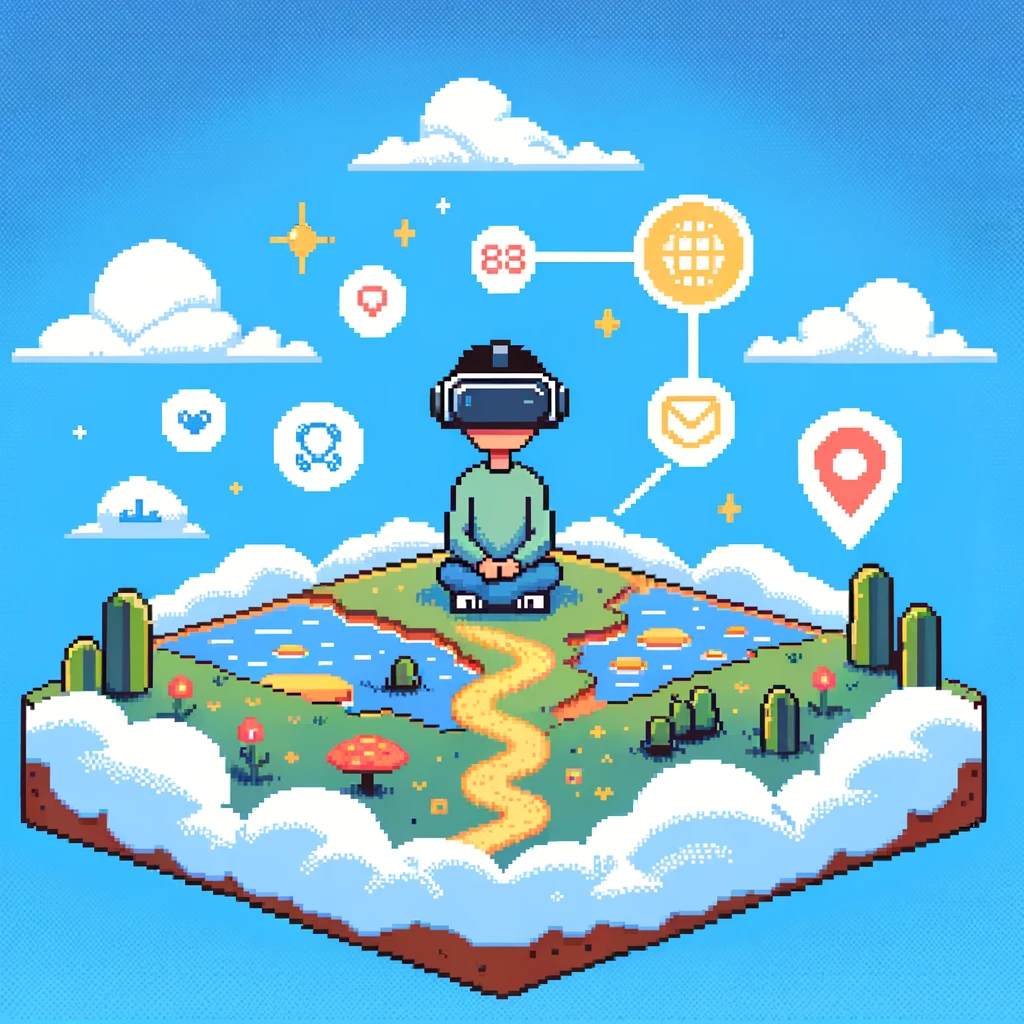
Exploring the Virtual Frontier: Virtual Reality and Gamification in Mental Health
In the digital era, where technology touches every aspect of our lives, the field of mental health has not been left untouched. A recent systematic review titled “A systematic review on the efficacy of virtual reality and gamification interventions for managing anxiety and depression” dives into the effectiveness of two cutting-edge techniques: Virtual Reality (VR) and gamification, as tools to manage mental health disorders, especially anxiety and depression.
What are VR and Gamification?
Virtual Reality (VR) is a technology that immerses users in a completely virtual environment, often using a head-mounted display. It’s a way to simulate experiences that can be similar or completely different from the real world. In healthcare, VR’s immersive nature is used to replicate real-life scenarios or create calming environments, making it a powerful tool for therapy.
Gamification, on the other hand, involves applying game-like elements in non-game contexts to engage and motivate people. In mental health, this means using points, levels, challenges, and rewards to encourage participation and adherence to treatment plans.
The Study’s Findings
The review conducted a rigorous examination of 15 studies, analyzing the impact of VR and gamification on managing anxiety and depression. The findings were promising:
- Efficacy of VR: Across all studies, VR interventions showed positive effects in managing anxiety and depression symptoms. The immersive experiences provided safe environments for patients to face their fears or practice relaxation techniques.
- The Role of Gamification: Gamification elements like rewards, levels, and interactive challenges were used to keep participants engaged and motivated throughout the treatment process.
- Need for Diverse and Larger Studies: While the results are encouraging, the review calls for more research involving diverse participant samples and larger cohorts to confirm these findings across different populations.
Implications for Public Health Practitioners
As public health practitioners look to innovative strategies for mental health care, this review highlights several critical points:
- Innovative Treatment Options: VR and gamification offer new pathways for treatment, providing engaging, safe, and controlled environments for patients to manage their symptoms.
- Customizable Interventions: These technologies allow for personalized treatment, which can be tailored to individual needs, potentially increasing the effectiveness of mental health interventions.
- Remote Accessibility: VR interventions can be administered remotely, broadening the accessibility of mental health services, especially in underserved areas or for individuals unable to leave their homes.
Challenges and Considerations
While the review is optimistic about the potential of VR and gamification, it also acknowledges the need for more comprehensive research. Future studies need to address several areas:
- Diversity in Research: Including participants from various backgrounds and age groups will help understand how these interventions work across different demographics.
- Long-term Efficacy: More longitudinal studies are needed to assess the long-term benefits and potential risks associated with these interventions.
- Integration into Healthcare Systems: Understanding how to effectively integrate VR and gamification into existing healthcare practices will be crucial for their widespread adoption.
Conclusion
The journey into the virtual frontier of mental health treatment is just beginning. VR and gamification hold immense potential in transforming mental health care, offering innovative, engaging, and effective treatment options. As technology continues to evolve, so too will its applications in healthcare, promising a future where virtual environments play a critical role in healing and well-being.
For those intrigued by the potential of VR and gamification in mental health, diving deeper into the original article is a must. It’s an opportunity to understand the nuances of this cutting-edge research and its implications for the future of mental health treatment.
Be the Health Change-Maker – Get Informed Weekly!
Step into the role of a public health change-maker with ‘This Week in Public Health.’ Each issue brings you closer to the heartbeat of community health, innovative research, and advocacy. It’s more than news; it’s a platform for transformation. Subscribe for free and join a community of informed individuals driving positive change in public health every week!


